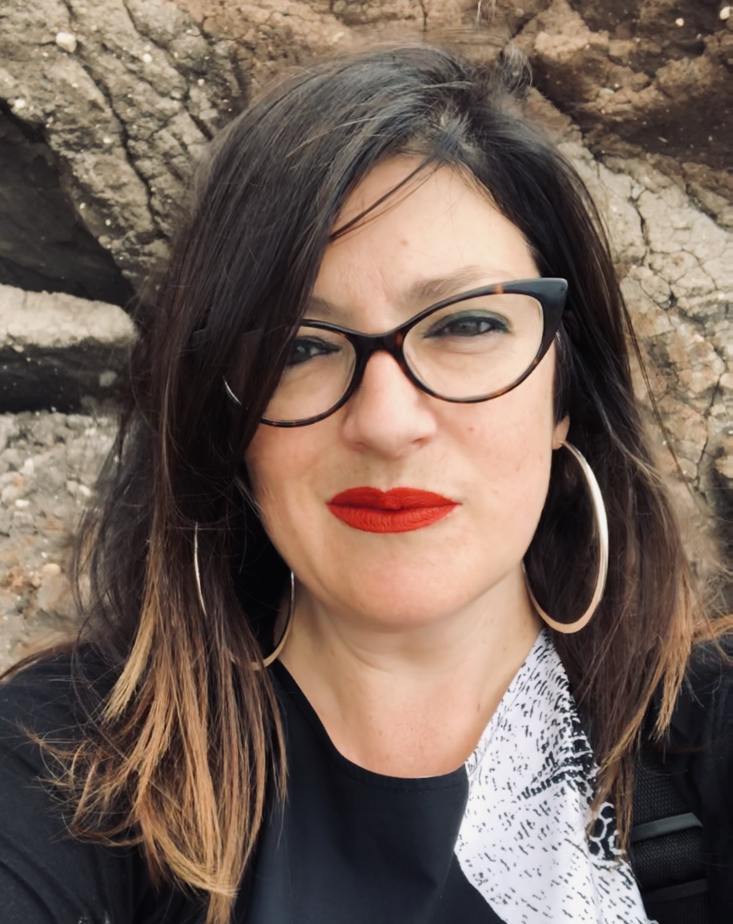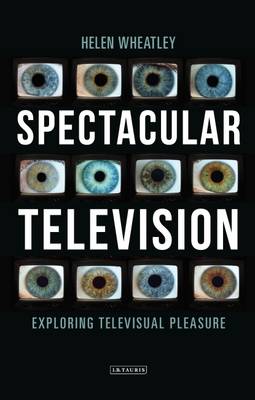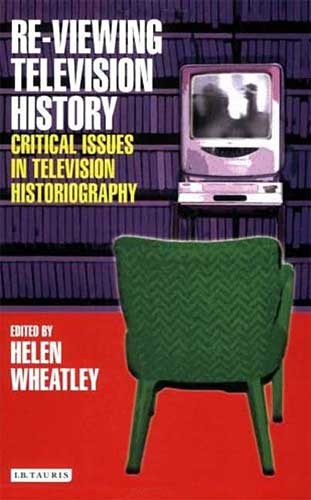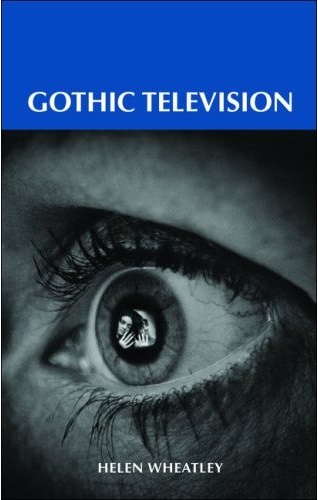Professor Helen Wheatley

Academic Director, Warwick Institute of Engagement
Co-Founder of the Centre for Television Histories
Tel: 07918330160
Email: helen.wheatley@warwick.ac.uk
Room 2.29a, Ramphal Building
About
Professor Helen Wheatley is Professor of Film and Television Studies,Link opens in a new window co-founder of the Centre for Television Histories , and Academic Director of the Warwick Institute for Engagement. She works collaboratively with archives and curators to engage the public with the history of British broadcasting, and has twice been awarded the university’s prizes for impact/community engagement for this work. Her book, Spectacular Television: Exploring Televisual Pleasure Link opens in a new window(IB Tauris, 2016) won the BAFTSS Award for Monograph of the Year in 2017. She has just published the monograph Television/Death (Edinburgh University Press, 2024).
Helen Wheatley holds a BA in American and English Literature from the University of East Anglia and an MA and PhD in Film and Television Studies from the University of Warwick. Helen has taught at the University of Warwick since 1998, with a brief sojourn to the University of Reading as Postdoctoral Research Fellow on the AHRB-funded project Cultures of British Television Drama, 1960-82 between 2003 and 2005. Helen was co-investigator on the AHRC-funded project A History of Television for Women in Britain, 1947-89. She also serves on the editorial boards of the following journals: Screen, Critical Studies in Television, Intensities, Revenant.
Research interests
I have research interests in various aspects of British television history, and have published work on popular genres in television drama in the UK, US, including the monograph Gothic Television (2006). I have an ongoing interest in issues of television history and historiography, the topic of my edited collections Re-viewing Television History: Critical Issues in Television Historiography (IB Tauris, 2007) and Television for Women: New Directions (Routledge, 2016, with Rachel Moseley and Helen Wood).
My monograph Spectacular Television: Exploring Televisual Pleasure was published by IB Tauris in 2016; this combines research on the history of particular television technologies as spectacular, with analysis of the ways in which, for example, landscape, bodies (both human and animal), and action are rendered visually pleasurable or spectacular on the small screen. It won the BAFTSS Award for Monograph of the Year in 2017.
I was Co-Investigator on the AHRC-funded project ‘A History of Television for Women in Britain, 1947-1989’, running between Warwick and De Montfort University, 2010-2014, with Rachel Moseley (Warwick) and Helen Wood (Leicester University). The project brought together archival and audience research methods in order to map this untold history and explore women viewers’ memories of the television that has been addressed to them. The project was awarded the 2012 Arts Impact Award for public engagement with its Pop-Up TV Pop Shop in Coventry City Centre.
I co-initiated and consulted on the large-scale touring exhibition The Story of Children's Television, From 1946 to Now which was curated by colleagues at the Herbert Art Gallery and Museum which toured the UK from May 2015 until March 2017, and for which Rachel Moseley and I won the University of Warwick's Community Contribution award.
My most recent monograph, Television/Death (Edinburgh University Press, 2024), intertwines the study of death, dying and bereavement on television with discussion of the ways that television (and the TV archive) provides access to the dead as the posthumous media par excellence.
I am at the beginning of a new project, tentatively titled Television and Travellers, that looks at how travelling/mobile communities have been represented on British television across its history and works with those communities to explore the television archive in new ways.
Selected Publications
Books
-
Gothic Television (Manchester University Press, 2006).
-
Re-viewing Television History: Critical Issues in Television Historiography (IB Tauris, 2007).
-
Spectacular Television: Exploring Televisual Pleasure (IB Tauris, 2016).
- Television for Women: New Directions (Routledge, 2016, with Rachel Moseley and Helen Wood).
- Television/Death (Edinburgh University Press, 2024).
Articles
- 'Haunted Television: Trauma and the Specter in the Archive' JCMS: Journal of Cinema and Media Studies, vol. 59 no. 3, 2020, p. 69-89. N.B. This article won the British Association for Film, Television and Screen Studies 'Article of the Year' award in 2021.
- (2020) ‘Signs of Care: assisted suicide on television’ in Amy Holdsworth, Karen Lury, and Hannah Tweed (eds) Discourses of Care (Routledge), pp. 21-37.
- (2019) ‘Memory, nostalgia and the material heritage of children’s television in the museum’ with Amy Holdsworth and Rachel Moseley, VIEW: Journal of European Television History and Culture, 8(15), pp.111–122
- ‘Television in the Ideal Home’ in R. Moseley, H. Wheatley and H.
Wood (eds) Television for Women: New Directions (Routledge, 2016). - ‘“Marvellous, awesome, true-to-life, epoch-making, a new dimension”: Reconsidering the early history of colour television in Britain’, in Laura Mee and Johnny Walker (eds) Cinema, Television and History (Cambridge: Cambridge Scholars Press, 2014).
-
‘At home on safari: colonial spectacle, domestic space and 1950s television’, Journal of British Cinema and Television. Volume 10, pp. 257-275 (2013).
-
‘Uncanny children, haunted houses, hidden rooms: Children’s Gothic television in the 1970s and 80s’, Visual Culture in Britain, 13: 3, pp. 383-397 (2012).
-
'Beautiful images in spectacular clarity: spectacular television, landscape programming and the question of (tele)visual pleasure' Screen, 52:2 (2011).
-
‘Is Archiving a Feminist issue? Historical Research and the Past, Present and Future of Television Studies’ [with Rachel Moseley], Cinema Journal, 47:3 (2008).
-
‘Rooms within rooms: ITV and the studio heritage drama of the 1970s’ in C. Johnson and R. Turnock (eds), ITV Cultures: Independent Television Over Fifty Year, pp. 143-158 (Maidenhead: Open University Press, 2005).
-
‘The limits of television? Natural history programming and the transformation of public service broadcasting’, European Journal of Cultural Studies, 7:3, pp. 325-339 (2004).
Teaching and supervision
I do not currently teach in Film and Television Studies because of other duties.
I am especially interested in supervising PhD projects on television history and historiography, television drama, the UK and US television industries and programming more broadly.
Administrative roles
- MA Admissions




